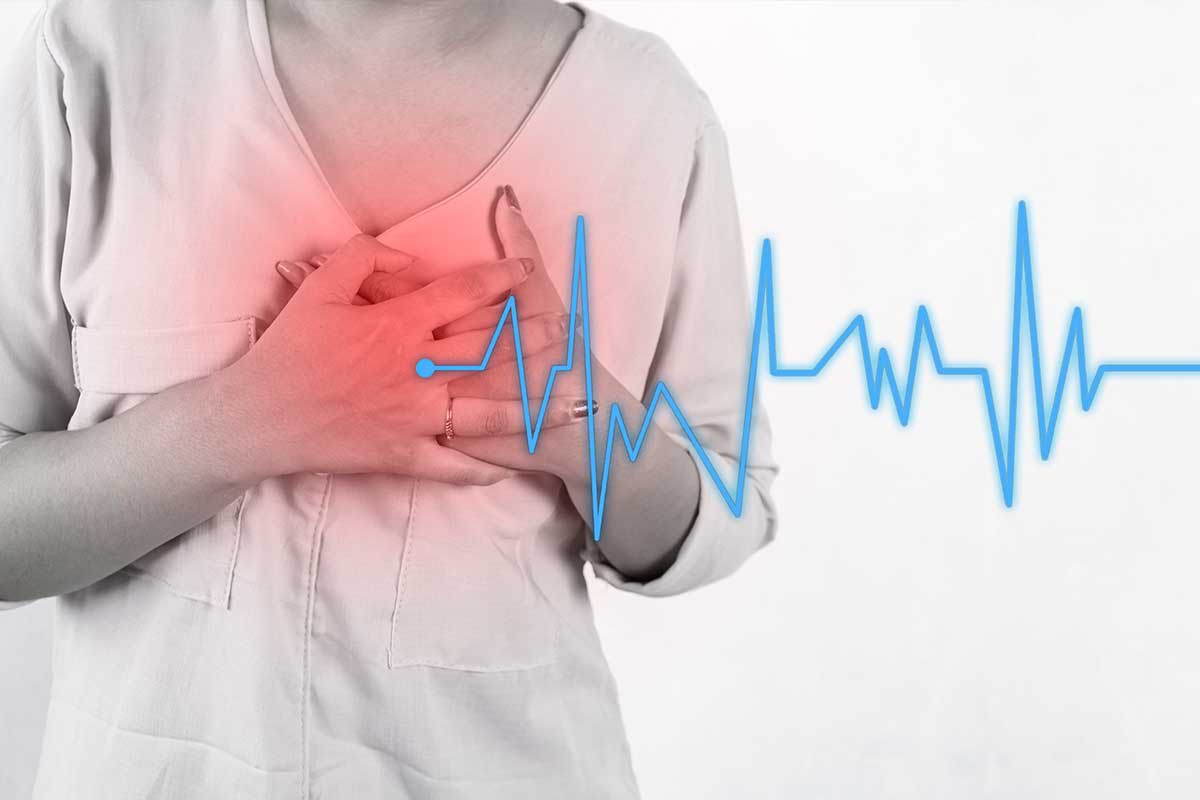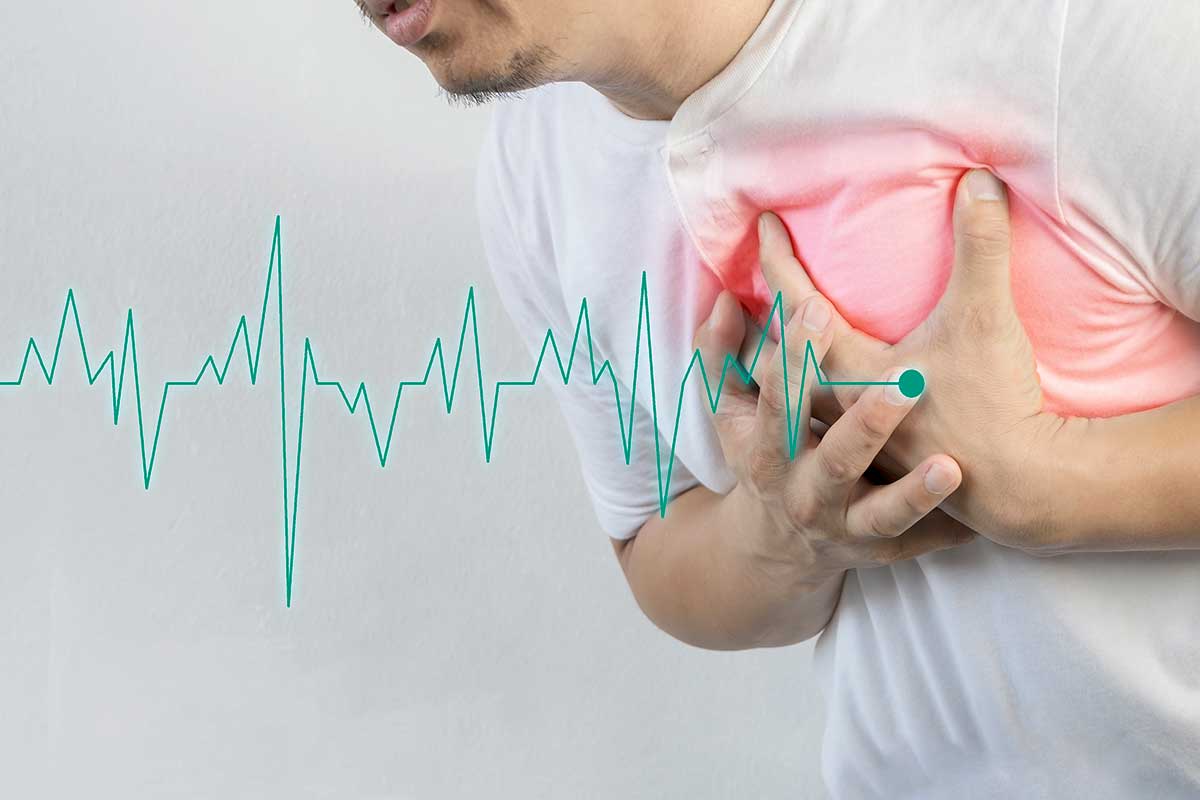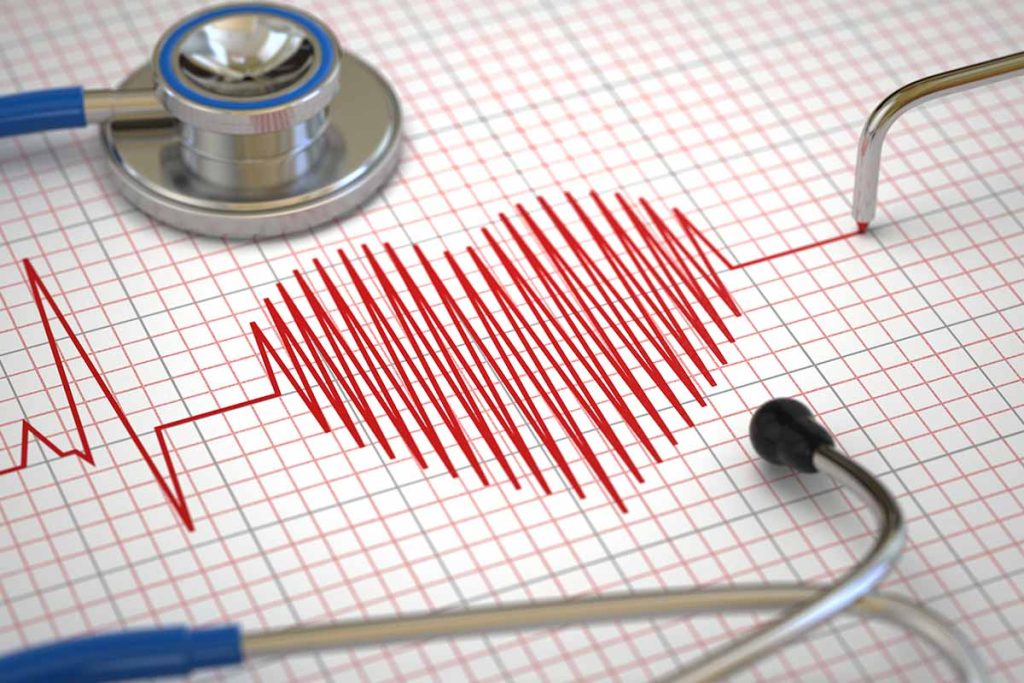Heart Palpitation Specialist in Michigan
If you are experiencing heart palpitations or ectopic beats, it can be a concerning and uncomfortable experience. Seeking the help of a specialist can provide you with the care and treatment you need to manage your symptoms and improve your heart health. If you are looking for a ectopic beats or heart palpitation specialist in Michigan, you have come to the right place.
CardioQ – Heart & Wellness Center is home to highly qualified cardiologist and electrophysiologist who specialize in the diagnosis and treatment of heart rhythm disorders, including palpitations and ectopic beats. Whether you are seeking medical management, non-invasive treatments, or more advanced procedures such as catheter ablation or implantable devices, our specialists can help.


Heart Palpitations or Ectopic Beats
Heart palpitations are feelings of having a fast-beating, fluttering or pounding heart. Stress, exercise, medication or, rarely, a medical condition can trigger them.
At CardioQ, Heart Palpitation Treatment in Michigan can be provided with utmost care and expertise.
Although heart palpitation can be worrisome, they’re usually harmless. In rare cases, they can be a symptom of a more serious heart condition, such as an irregular heartbeat (arrhythmia), that might require treatment.

Signs & symptoms
Heart palpitations can feel like your heart is:
- Skipping beats
- Fluttering rapidly
- Beating too fast
- Pounding
- Flip-flopping
Seek Emergency
Seek emergency medical attention by Heart Palpitation Specialist if heart palpitations are accompanied by:
- Chest discomfort or pain
- Fainting
- Severe shortness of breath
- Severe dizziness
Common questions
Heart palpitations can be caused by a wide range of factors, including:
Stress and Anxiety: High levels of stress and anxiety can cause your heart to race or skip beats, leading to palpitations.
Caffeine and Alcohol: Consuming too much caffeine or alcohol can also trigger heart palpitations.
Medications: Certain medications, such as asthma inhalers, decongestants, and thyroid medications, can cause palpitations as a side effect.
Hormonal Changes: Hormonal changes during pregnancy, menopause, or menstruation can also cause heart palpitations.
Heart Conditions: Certain heart conditions, such as atrial fibrillation, ventricular tachycardia, or arrhythmia, can cause palpitations.
Electrolyte Imbalances: Imbalances in potassium, magnesium, or calcium levels in the body can also cause heart palpitations.
Other Factors: Other factors that can contribute to heart palpitations include dehydration, low blood sugar, anemia, and hyperthyroidism.
If you are experiencing heart palpitations, it is important to see a doctor to determine the underlying cause and develop an appropriate treatment plan.
There are several risk factors associated with heart palpitations, including:
Age: As people get older, they are more likely to experience heart palpitations.
Gender: Women are more likely to experience heart palpitations than men.
Family History: If heart disease or arrhythmias run in your family, you may be at a higher risk for heart palpitations.
Medical Conditions: Certain medical conditions such as high blood pressure, diabetes, and thyroid disorders increase the risk of heart palpitations.
Lifestyle Factors: Certain lifestyle factors, such as smoking, excessive alcohol consumption, and drug abuse, can increase the risk of heart palpitations.
Emotional and Psychological Factors: Stress, anxiety, and panic disorders can also trigger heart palpitations.
Medications: Certain medications used to treat other medical conditions, such as asthma or high blood pressure, can increase the risk of heart palpitations.
If you have any of these risk factors, it is important to take steps to manage your risk of heart palpitations by making lifestyle changes, managing underlying medical conditions, and discussing any concerns with your doctor.
In most cases, heart palpitations are harmless and do not lead to any serious complications. However, in some cases, palpitations can be a sign of an underlying heart condition or can cause complications such as:
Fainting: If the heart beats too fast or too slow, it may not be able to pump enough blood to the brain, leading to fainting.
Heart Failure: If an underlying heart condition is causing palpitations, it can eventually lead to heart failure if left untreated.
Blood Clots: Palpitations caused by arrhythmias can increase the risk of blood clots forming in the heart, which can lead to stroke or heart attack.
Cardiac Arrest: In rare cases, palpitations can lead to cardiac arrest, which is a sudden loss of heart function.
Anxiety and Depression: Frequent or chronic palpitations can cause anxiety and depression, which can in turn exacerbate the palpitations.
If you are experiencing frequent or chronic heart palpitations, it is important to see a doctor to determine the underlying cause and develop an appropriate treatment plan to prevent complications.
